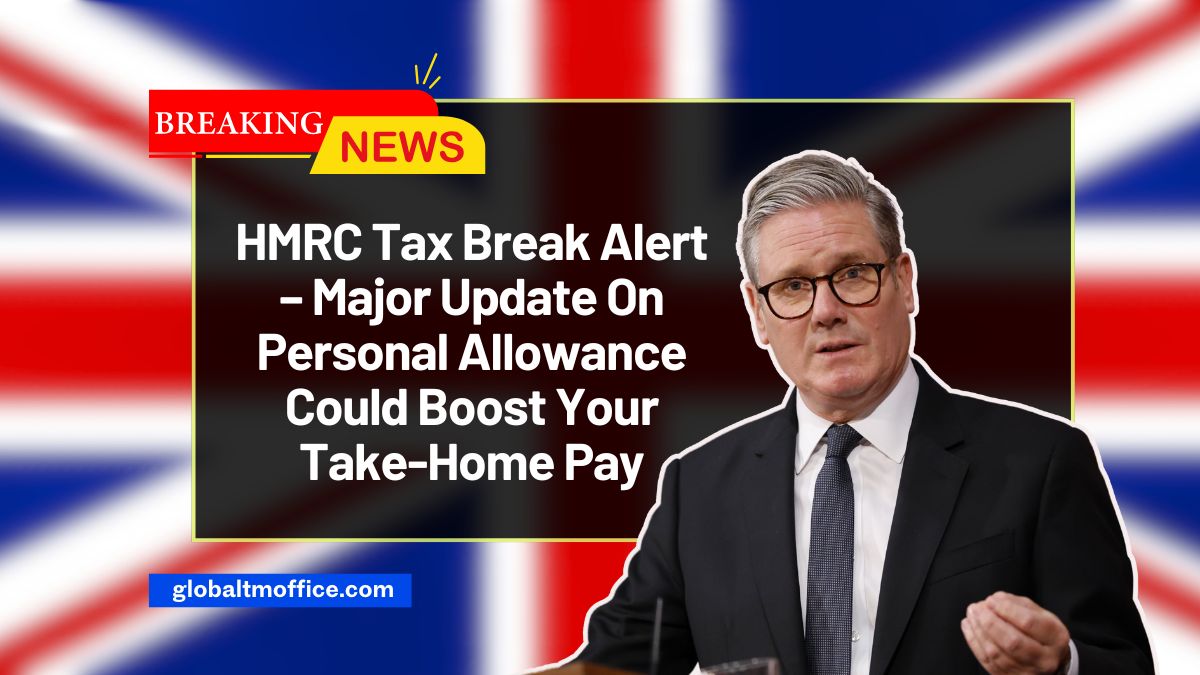The UK Government has responded to growing public pressure to increase the Personal Allowance—the amount of income you can earn before paying income tax.
This comes after an online petition to raise the allowance from £12,570 to £20,000 attracted over 252,500 signatures, sparking a formal debate in Westminster Hall.
While the current Personal Allowance remains frozen until at least 2028, discussions about easing the tax burden on low earners and pensioners have reached the national stage, raising hopes of future tax relief.
Here’s what you need to know about the latest HMRC tax break update, its potential impact on your take-home pay, and where things currently stand.
What Is the Personal Allowance?
The Personal Allowance is the threshold at which individuals start to pay income tax. For the 2024/25 and 2025/26 tax years, it remains frozen at £12,570. Any income earned above this amount is subject to taxation based on your income bracket.
What Sparked the Latest HMRC Update?
A public petition titled “Raise the income tax personal allowance from £12,570 to £20,000” called on the government to increase the allowance.
The petition, led by Alan David Frost, argued that taxing pensioners on their State Pension above the threshold is unfair, and that increasing the allowance would help low earners get off benefits while stimulating the economy.
The petition’s momentum led to an official Parliamentary debate, where MPs addressed its implications. However, the Government has not agreed to raise the threshold but confirmed it will not extend the current freeze beyond 2028.
What the Government Said
James Murray, Treasury Secretary, responded to the petition, stating:
- “We want taxes on working people and pensioners to be as low as possible. But raising the Personal Allowance to £20,000 would cost over £50 billion, nearly equal to the entire UK defence budget or a 25% cut to the NHS.”
The government emphasized fiscal responsibility, choosing not to increase the threshold but also not extending the freeze. This allows for potential changes in future fiscal years without locking the government into long-term freezes.
Personal Allowance vs. State Pension
For many State Pension recipients, their income may exceed the Personal Allowance, especially if they receive additional income from part-time work, private pensions, or investment returns.
State Pension 2025/26 Breakdown:
| Type of Pension | Weekly | Monthly | Annual |
|---|---|---|---|
| Full New State Pension | £230.25 | £921 | £11,973 |
| Full Basic State Pension | £176.45 | £705.80 | £9,175 |
While those receiving only the Basic State Pension will likely remain under the threshold, those with other income sources may be taxed on earnings above £12,570.
Key Arguments in the Debate
In Favour of Raising the Allowance:
- Helps low-income earners and pensioners retain more of their income.
- Could lift thousands off benefits and reduce state dependency.
- Injects more money into the economy through increased spending.
Against Raising the Allowance (Government Stance):
- Estimated £50 billion cost to public finances.
- Would require major budget cuts in other essential areas.
- Could lead to economic instability if unfunded.
Impacts on Take-Home Pay
If the Personal Allowance were to be raised in the future, here’s what taxpayers could expect:
| Allowance Level | Tax-Free Income | Potential Annual Savings |
|---|---|---|
| Current (£12,570) | £12,570 | £0 |
| Proposed (£20,000) | £20,000 | Up to £1,486 |
- Assuming a 20% tax rate on the difference of £7,430 = £1,486 savings.
For pensioners, this change would mean not being taxed on most or all of their State Pension and reducing reliance on tax refund systems like PAYE or self-assessment.
How This Affects You
- If you’re a pensioner earning only the State Pension, you may still be under the tax threshold, depending on other income.
- Working individuals may feel the impact of the frozen threshold as wage inflation pushes them into higher tax brackets (a phenomenon known as fiscal drag).
- While no changes are coming yet, public pressure may influence future budgets—especially with growing calls for fairer taxation.
The debate over the Personal Allowance threshold highlights a deeper conversation about tax fairness, fiscal responsibility, and economic growth in the UK.
While the government has chosen to maintain the current allowance for now, the pressure from voters and advocacy groups could pave the way for future changes.
If the allowance were to be raised, it would significantly benefit pensioners and low-income workers, putting more money into their pockets at a time when the cost of living remains high.
For now, taxpayers are encouraged to stay informed, manage their tax liabilities, and use government tools to forecast State Pension and income tax impacts.
FAQs
Is the Personal Allowance changing in 2025?
No. The Personal Allowance remains at £12,570 through the 2025/26 tax year, with no increase currently planned.
Will pensioners still pay tax on their State Pension?
Yes, if their total income exceeds £12,570, they will be taxed on the amount over the threshold.
Could the Personal Allowance rise in the future?
It’s possible, but currently there are no government plans to raise it to £20,000 due to budget constraints.
